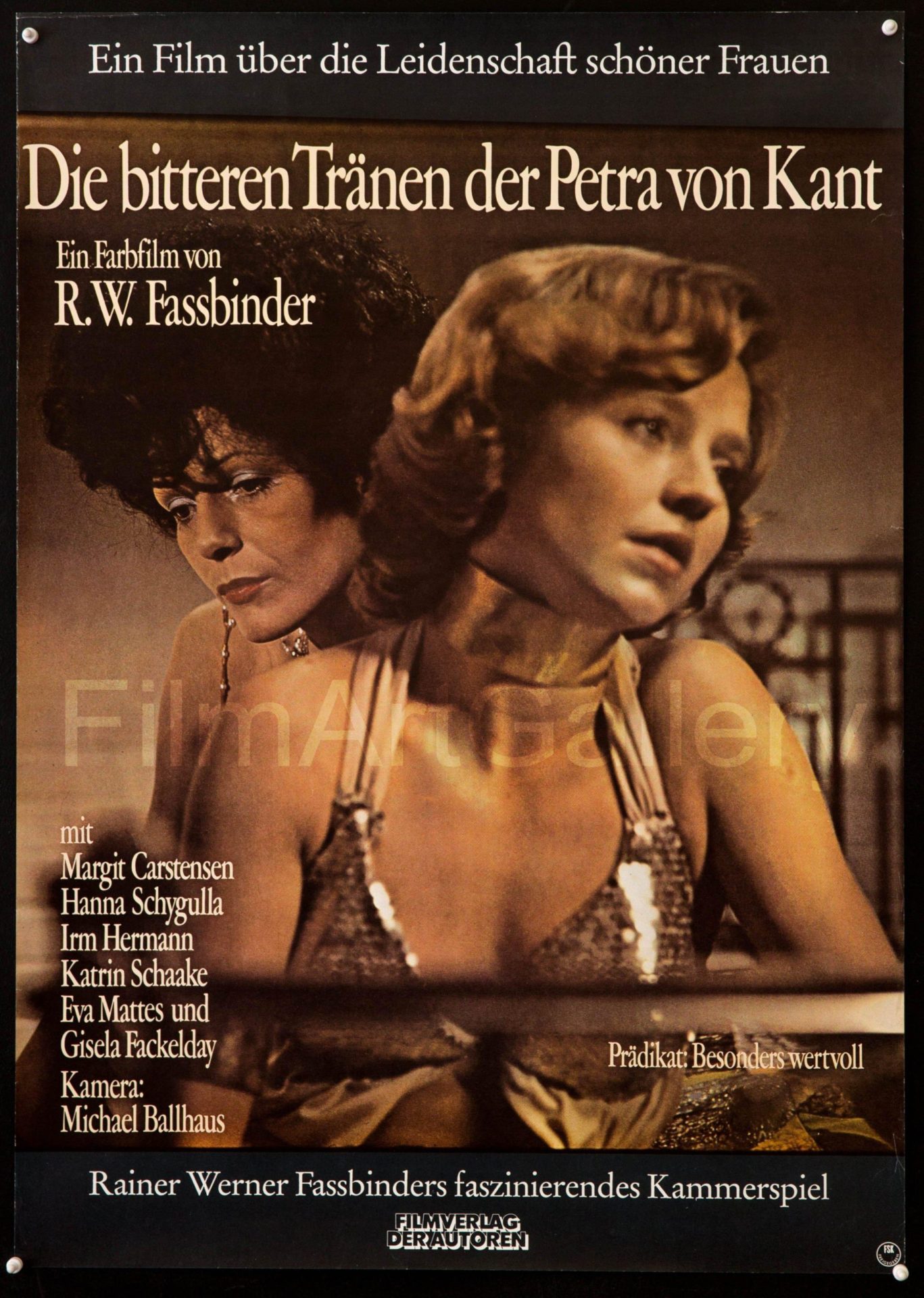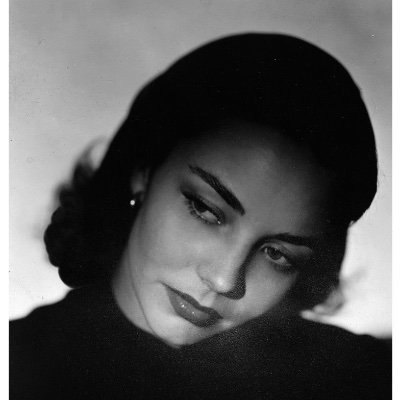
- Starring
- Margit Carstensen, Hanna Schygulla, Katrin Schaake
- Writer
- Rainer Werner Fassbinder
- Director
- Rainer Werner Fassbinder
- Rating
- n/a
- Running Time
- 124 minutes
Overall Score
Rating Summary
Petra von Kant is one of the most achingly human, fragile characters this reviewer has ever encountered over years of watching films. She is the centrepiece of The Bitter Tears of Petra von Kant, a film that serves as one long, thoroughly detailed character study. Rainer Werner Fassbinder experiments with form and storytelling conventions in an effort to provide viewers with multiple perspectives on this complicated woman. He constantly tests us, as audience members, forcing us to question our own preconceived opinions and expectations. It’s almost like watching a cross between Otto Preminger’s Laura and one of Douglas Sirk’s campy melodramas. It is rare that we get to explore the minds of such repulsive human beings and come to acknowledge that all of their worst traits do lay dormant in most people.
The Bitter Tears of Petra von Kant doesn’t have a plot, as such, but moves through five different acts in which different aspects of the personality and interpersonal relationships of von Kant (Margit Carstensen). In the first act, von Kant is introduced as a successful fashion designer with a massive ego who enjoys obsessing over her emotional issues. Her assistant Marlene (Irm Hermann) silently tends to her every whim and endures her emotional abuse. When von Kant’s cousin Sidonie (Schaake) arrives at her apartment, she tells her about her experiences with love and divorce.
This first act feels very confronting and transgressive in its own way. It quickly feels constricting and harsh, in the way that it cuts through all of the niceties and gets to the painful stuff. Somehow, viewers immediately feel as though they are immersed in von Kant’s life. This is mostly because mise-en-scene has been put to such good use and Fassbinder’s strategic camera placement highlights the contrasts between von Kant and Sidonie. It’s easy to tell that von Kant spends most of her days locked in her house, rambling about missed opportunities, berating Marlene. Every room is full of shiny ornaments that seem to have been rearranged an unhealthy amount of times, and von Kant seems to have practised her reclining pose, like a person who has plenty of spare time to prepare for imagined confrontations. This woman’s deep loneliness is conveyed through just a few shots and we immediately find ourselves feeling sympathy for her.
Fassbinder, like von Kant, toys with viewers during this first act and pretends that von Kant is more vulnerable and weak than she really is. It is telling that her long confession to her cousin is shot like an audition of sorts. Carstensen speaks in an affected manner and there is always the feeling that she is trying to entertain and excite her audience. She is scarily convincing and you find yourself believing her assertions about her bravery in pursuing love and moving on from her neglectful husband. Like Waldo Lydecker, she seems respectable and authoritative, so we are predisposed to trust her. Even as the evidence mounts against her, and she treats the people around her poorly, we still find ourselves trusting her when she moans about her problems. She has rewritten the history of her failed relationship through the monologue that she has crafted, and it allows her to ignore her own shortcomings. It is painful to realise that we have been duped by her, and yet Fassbinder finds a way to make her all the more relatable for blatantly lying to the people around her.
The first few scenes are mesmerising in their power and intensity and the rest of The Bitter Tears of Petra von Kant feeds off of the tension between von Kant’s self-created image and the realities of her life. The following four acts are mostly taken up with the short-lived romance she shares with Karin (Schygulla), a younger married woman who agrees to let von Kant turn her into a fashion model. Karin is married and quickly becomes frustrated with how controlling and possessive von Kant can be. She feels as though von Kant objectifies her and does not treat her with her enough respect. Their relationship eventually breaks down for various reasons and von Kant is left to pick up the pieces.
The Bitter Tears of Petra von Kant features a brilliant script that allows von Kant to remain a riddle of contradictions. She is somebody who relishes the thrill of pushing a person like Karin, who is strong-willed and fiercely independent, into a subservient position. Karin is a challenge to her and it flatters her own ego to know that the younger woman chooses to stay with her, even when she cruelly suggests that she has no virtues beyond her physical attractiveness. Characters primarily communicate through long monologues in which they draw in references to the events of previous scenes, emotional introspection and efforts at manipulating one another. People do not speak this way in real life and it takes a formalist approach to make all of this seem natural. Fassbinder leans into the arch theatricality of this strange style of speech and gives the actresses the room to play up everything at their disposal, to dramatic effect. Carstensen is thrillingly icy and coolly sensual in her role and seems to perfectly understand the tone of the film that she is in. She never hesitates for a moment or retreats from playing von Kant as a representative of all that is wrong with a certain type of self-satisfied artist.
This may sound hyperbolic but The Bitter Tears of Petra von Kant is a masterpiece. For a film to seem avant-garde and boundary pushing, so many years after it was first released, is a special feat, that should serve as reason enough to sit down and watch it. If that isn’t a strong enough recommendation, then what is?
still courtesy of Janus Films
Follow me on Twitter.
If you liked this, please read our other reviews here and don’t forget to follow us on Twitter or Instagram or like us on Facebook.

I am passionate about screwball comedies from the 1930s and certain actresses from the Golden Age of Hollywood. I’ll aim to review new Netflix releases and write features, so expect a lot of romantic comedies and cult favourites.
Discover more from
Subscribe to get the latest posts sent to your email.
